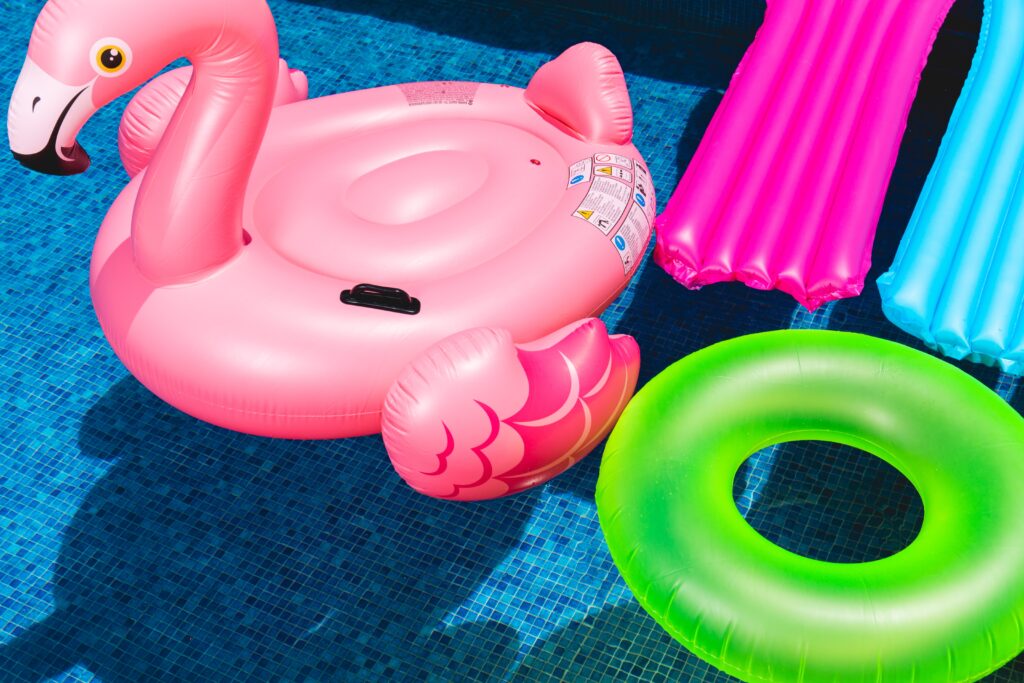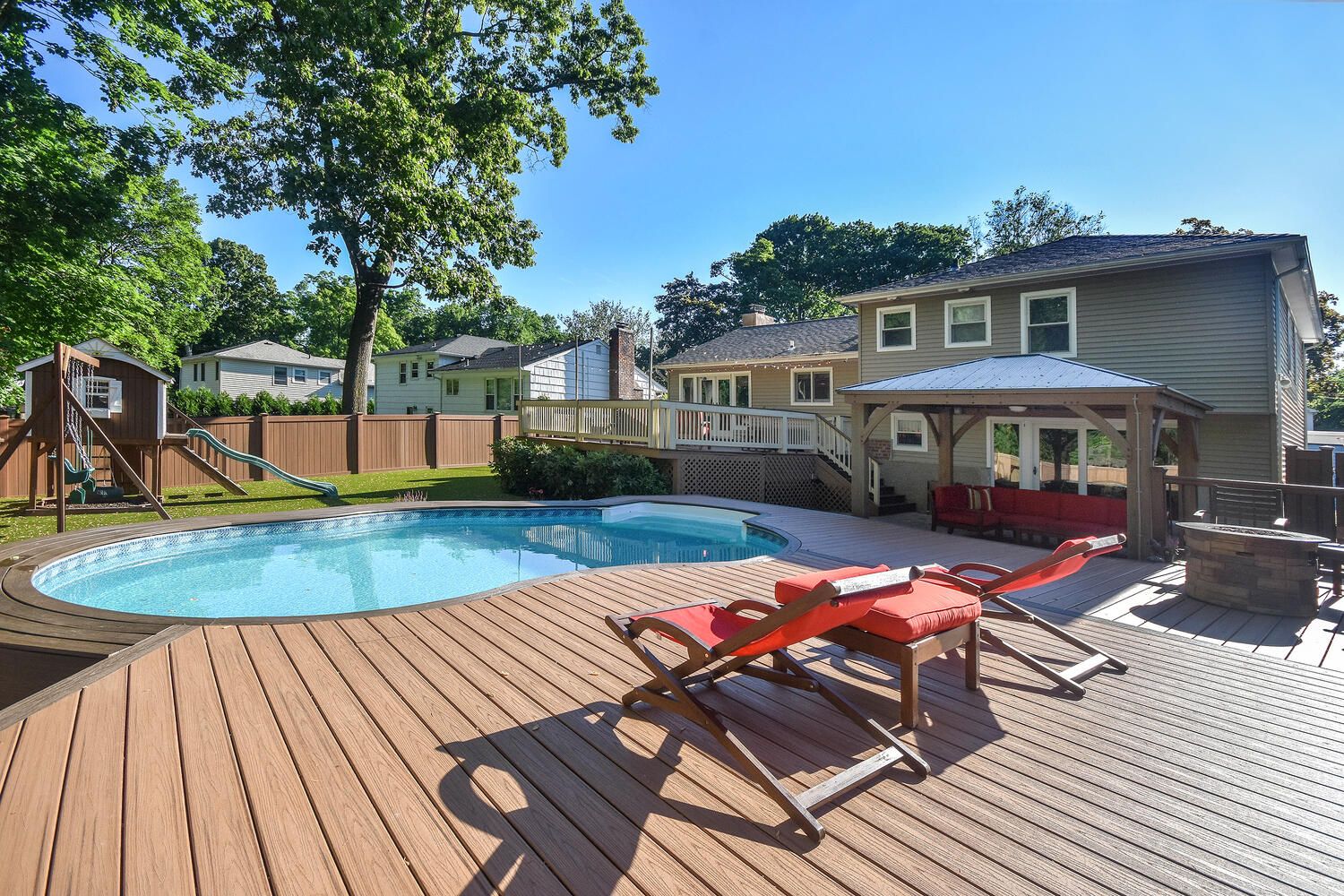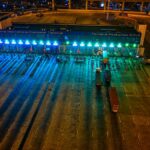So you have an above ground pool and you’re wondering if it’s possible to heat it up? Well, the good news is that yes, you can heat an above ground pool! Whether you want to extend your swimming season or just enjoy a warm soak on cooler days, there are various options available to help you achieve the perfect temperature. From solar covers and propane heaters to heat pumps and electric pool heaters, this article will explore different methods to efficiently heat your above ground pool and make every swim a comfortable and enjoyable experience. Yes, you absolutely can! There are several types of pool heaters available that can effectively warm up your above ground pool and extend your swimming season. In this article, we will explore the different types of pool heaters and guide you through the considerations before heating your pool. We will also discuss the installation process and the specific features, benefits, and limitations of each type of pool heater. Additionally, we will delve into the factors that can affect the heating efficiency of your pool and the various benefits of heating an above ground pool. Finally, we will touch on the cost considerations associated with pool heaters. So, let’s dive in and discover the best heating options for your above ground pool!
This image is property of images.unsplash.com.
Types of Pool Heaters
Solar Pool Heaters
Solar pool heaters utilize the power of the sun to warm up your above ground pool. They are eco-friendly and harness the natural energy from the sun to heat the water. Solar panels, typically installed on your roof or another area with maximum sun exposure, collect the sunlight and transfer the heat to the pool water. Solar pool heaters are a great choice if you’re looking for a long-term, energy-efficient heating solution.
Gas Pool Heaters
Gas pool heaters operate by burning either natural gas or propane to generate heat. They are known for their rapid heating capabilities and are suitable for pools requiring quick temperature adjustments. Gas heaters are ideal for colder climates or if you need to heat your pool in a short amount of time.
Electric Pool Heaters
Electric pool heaters utilize electricity to heat the pool water. They work by passing the water over heating elements that warm it up before returning it to the pool. Electric heaters are relatively easy to install and maintain, making them a convenient option for above ground pool owners.
Heat Pump Pool Heaters
Heat pump pool heaters extract heat from the surrounding air and transfer it to the pool water. These heaters work efficiently by leveraging the warm air outside, even when the temperatures are cool. Heat pump pool heaters are known for their energy efficiency and durability, making them a popular choice among pool owners.
Considerations Before Heating an Above Ground Pool
Size of the Pool
The size of your above ground pool will play a crucial role in determining the type and size of the pool heater you’ll need. Larger pools will require more powerful heaters to heat the water effectively. Be sure to consider the surface area and water capacity of your pool when selecting a heater.
Insulation
Proper insulation is essential to minimize heat loss and maximize the efficiency of your pool heater. Ensure that your above ground pool is well-insulated, especially if you live in a colder climate. Insulation can be achieved by using a pool cover, insulative pool liners, or by enclosing the pool area.
Climate
The climate in which you reside will significantly impact the efficiency and effectiveness of your pool heater. If you live in an area with consistent sunlight, solar pool heaters will work exceptionally well. In colder climates, gas or electric heaters may be more suitable for maintaining a comfortable pool temperature.
Budget
Budget is an important consideration when it comes to choosing a pool heater. Each type of heater has its own upfront and operational costs. Solar heaters may have a higher initial investment but offer long-term savings on energy bills. Electric heaters tend to have a lower upfront cost but higher operational costs. Gas heaters may require a larger upfront investment for the heater itself and ongoing fuel costs. Determine your budget and research the cost implications of each type of heater before making a decision.
Installation Process
Choose a Location
When installing a pool heater, it is important to select an appropriate location. Solar pool heaters require ample sun exposure, so consider placing the solar panels on a south-facing roof or an area with maximum sunlight throughout the day. Gas and electric heaters should be installed in a well-ventilated area, preferably away from any flammable materials.
Prepare the Pool
Before installing the pool heater, make sure your above ground pool is ready. Clean the pool thoroughly, check for any leaks or damages, and ensure proper water circulation. It’s also a good idea to balance the pool water chemistry before heating it.
Select the Heater
Based on your pool size, insulation, climate, and budget considerations, choose the type and size of the pool heater that best suits your needs. Consult with a professional if you’re unsure about which heater is right for your above ground pool.
Connect the Heater
Follow the manufacturer’s instructions to connect the pool heater properly. If you’re not confident in your abilities, it’s always wise to hire a professional to ensure a safe and efficient installation. Make sure to properly connect the heater to the pool’s circulation system and electrical or fuel supply, depending on the type of heater you’ve chosen.
Solar Pool Heaters
How They Work
Solar pool heaters harness sunlight and convert it into heat energy using solar panels. The panels are typically made of lightweight, durable materials with small tubes running through them. These tubes contain water or a heat transfer fluid. As sunlight strikes the panels, the fluid within the tubes heats up and transfers the heat to the pool water as it circulates through the system. Solar pool heaters require a pump to circulate the water and a control system to regulate the temperature.
Benefits
One of the major advantages of solar pool heaters is their eco-friendliness. They rely on renewable energy from the sun, reducing reliance on fossil fuels. Solar heaters also have relatively low operational costs once they are installed. Additionally, solar pool heaters can extend your swimming season by maintaining a comfortable water temperature.
Limitations
While solar pool heaters offer significant benefits, they may not be the best option for everyone. Their efficiency heavily relies on the availability of sunlight, making them less effective in areas with limited sunlight or during cloudy days. Solar heaters also require a larger initial investment due to the cost of the solar panels and installation.
This image is property of images.unsplash.com.
Gas Pool Heaters
How They Work
Gas pool heaters use either natural gas or propane to generate heat. The heater contains a combustion chamber where the gas is burned, creating hot combustion gases. These gases pass through a heat exchanger, which transfers the heat to the pool water. The heated water is then returned to the pool. Gas heaters are usually connected to the pool’s circulation system and controlled by a thermostat.
Benefits
Gas pool heaters are known for their quick heating capabilities. They can raise the pool water temperature rapidly, allowing for prompt adjustments to suit your desired comfort level. Gas heaters are also effective in colder climates, where maintaining a warm pool temperature may be challenging with other heating options.
Limitations
One of the limitations of gas pool heaters is their reliance on fuel. This means that you need a steady supply of natural gas or propane to operate the heater. Additionally, gas heaters tend to have higher operational costs compared to other types of heaters. They may not be the most energy-efficient option for long-term use, especially if you regularly heat your pool.
Electric Pool Heaters
How They Work
Electric pool heaters use electrical energy to heat the pool water. The heater contains heating elements, typically made of metal, which get hot when electricity is passed through them. As the pool water flows over these heating elements, it absorbs the heat and returns to the pool at a higher temperature. Electric heaters are controlled by a thermostat and are usually connected to the pool’s circulation system.
Benefits
Electric pool heaters are relatively easy to install and maintain. They provide consistent heating performance and are suitable for smaller above ground pools. Electric heaters also tend to have a lower initial investment compared to other types of pool heaters.
Limitations
A major limitation of electric pool heaters is their higher operational costs. Electricity prices can vary, and continuously running an electric heater can lead to higher energy bills. Electric heaters may not be the most energy-efficient option, especially for larger pools or if you frequently heat your pool.
This image is property of images.unsplash.com.
Heat Pump Pool Heaters
How They Work
Heat pump pool heaters extract heat from the surrounding air and transfer it to the pool water. They work on the principle of refrigeration, using a compressor and a heat exchanger to transfer heat. The heat pump absorbs the heat from the air and compresses it, raising the temperature. The heat is then transferred to the pool water as it flows through the heat exchanger. Heat pump pool heaters are controlled by a thermostat and connected to the pool’s circulation system.
Benefits
Heat pump pool heaters are known for their energy efficiency. They can deliver more heat output compared to the electricity they consume, making them cost-effective in the long run. Heat pumps are also efficient in maintaining the desired water temperature for extended periods, making them suitable for consistent heating needs.
Limitations
Heat pump pool heaters may not be suitable for colder climates or areas with limited sunlight. They rely on the outside air temperature to extract heat, so their effectiveness can be reduced in colder environments. Heat pumps also require a larger initial investment compared to other types of heaters.
Factors Affecting Heating Efficiency
Insulation
Proper insulation is crucial for maximizing the efficiency of your pool heater. Without adequate insulation, heat loss can occur, reducing the effectiveness of your heater. Insulate your above ground pool using a pool cover, insulative pool liners, or by enclosing the pool area to minimize heat loss.
Pool Cover Usage
Using a pool cover when the pool is not in use is an effective way to retain heat and prevent evaporation. Pool covers create a barrier that helps to trap the heat generated by your pool heater. They also reduce the entry of debris and evaporation, saving you both energy and maintenance costs.
Sun Exposure
Sun exposure plays a critical role in the heating efficiency of solar pool heaters. Ensure that your solar panels receive maximum sunlight throughout the day, especially during the peak sun hours. Clear any obstructions, such as tree branches or structures, that may shade the panels and reduce their effectiveness.
Temperature
The desired water temperature of your above ground pool will affect the efficiency of your pool heater. The higher the desired temperature, the longer it will take to heat the pool and the more energy it will consume. Consider setting the temperature to a comfortable level that suits your needs while also being mindful of energy consumption.
Benefits of Heating an Above Ground Pool
Extended Swimming Season
One of the most significant benefits of heating an above ground pool is the ability to extend your swimming season. With a pool heater, you can enjoy your pool earlier in the spring and later into the fall when the weather would typically be too cool for swimming. This allows you to maximize the use of your pool and make the most of your investment.
Comfort
Heating your above ground pool provides added comfort for you and your family. The warmer water temperature ensures a more enjoyable swimming experience, especially during cooler days or chilly evenings. Being able to comfortably swim, relax, and unwind in a heated pool can enhance your overall pool ownership experience.
Health Benefits
Swimming in a heated pool can offer several health benefits. The warm water helps to relax muscles and joints, providing relief for individuals with arthritis or other physical ailments. Regular swimming in a heated pool can also improve circulation, increase lung capacity, and boost overall fitness levels. Additionally, swimming is a low-impact exercise that is gentle on the joints, making it an excellent option for all age groups.
Cost Considerations
Initial Investment
The cost of installing a pool heater can vary depending on the type and size of the heater, as well as any additional equipment or installation requirements. Solar pool heaters typically have a higher initial investment due to the cost of solar panels and installation. Gas heaters may also require a larger upfront investment since they need a dedicated gas line. Electric heaters tend to have a lower initial cost compared to solar and gas heaters.
Operational Costs
When considering a pool heater, it’s important to factor in the ongoing operational costs. Gas heaters will require a steady supply of natural gas or propane, which can add up over time. Electric heaters consume electricity to generate heat, so the cost of electricity usage should be considered. Solar pool heaters have minimal operational costs, as they primarily rely on the free energy from the sun.
Maintenance Costs
Maintenance costs should also be taken into account when deciding on a pool heater. Gas heaters may require occasional service or repairs, which can incur additional costs. Electric heaters generally have lower maintenance costs since they have fewer moving parts. Solar pool heaters require minimal maintenance but may need periodic cleaning of the panels to ensure optimal performance.
In conclusion, heating an above ground pool is a fantastic way to extend your swimming season, enhance comfort, and enjoy the numerous health benefits of swimming. With the range of pool heaters available, including solar, gas, electric, and heat pump heaters, there is an option to suit every pool owner’s needs and preferences. Before heating your pool, consider factors such as the size of your pool, insulation, climate, and budget. Proper installation and maintenance of the chosen heater will ensure its efficiency and longevity. Take into account the benefits and limitations of each type of heater, as well as factors affecting heating efficiency such as insulation, pool cover usage, sun exposure, and desired water temperature. Lastly, weigh the initial investment, operational costs, and maintenance costs associated with the pool heater of your choice. By carefully considering these factors, you can select the ideal pool heater that will provide you with a comfortable and enjoyable swimming experience in your above ground pool. So, go ahead and embrace the warmth!







